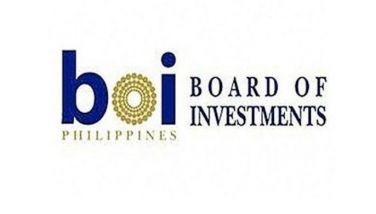Car firms buck lower tariff on CBU vehicles
March 17, 2003 | 12:00am
Local automotive manufacturers are against lowering the tariffs on completely built-up (CBU) vehicles.
According to incoming Isuzu Philippines executive vice president Kazuhiko Sho, the Philippine government should discourage CBU imports and instead continue encouraging the local assembly of vehicles using semi-knocked-down (SKD) kits.
Sho pointed out that all of the major Japanese automotive manufacturers have invested in their local manufacturing operations in the country and have already built up a network along with local automotive parts makers and suppliers.
The Philippine government, Sho said, should thus continue encouraging such investments instead of allowing CBU imports which would have less value added in terms of labor employment and autoparts sourcing.
CBU imports only need the addition of tires and batteries while SKD packs require various other autoparts which are sourced locally and generate employment for hundreds of skilled workers.
Tariffs on CBU imports are set to go down with the mandated World Trade Organization lowering of Most Favored Nation (MFN) rates to zero to five percent by 2004.
Local automotive manufacturers are, thus, lobbying the government to keep the current CBU tariff rates at 30 percent until 2010 when all tariff rates should be down to zero.
Under the ASEAN Free Trade Area (AFTA), member nations have agreed to bring down automotive tariff rates to between three and five percent with most members already participating in an ASEAN Industrial Cooperation (AICO) scheme.
The new Isuzu executive believes that if the Philippine government protects the local automotive manufacturing Industry, the Philippines could become an Asian utility vehicle (AUV) export hub.
Isuzu manufactures the popular Crosswind H-lander.
Sho replaces Hiroshi Ishino who has been Isuzu’s EVP in the Philippines for the past seven years.
Ishino is moving back to Tokyo to take on a different challenge.
Sho, was formerly with competing Mitsubishi Corp.’s car division. – Marianne Go
According to incoming Isuzu Philippines executive vice president Kazuhiko Sho, the Philippine government should discourage CBU imports and instead continue encouraging the local assembly of vehicles using semi-knocked-down (SKD) kits.
Sho pointed out that all of the major Japanese automotive manufacturers have invested in their local manufacturing operations in the country and have already built up a network along with local automotive parts makers and suppliers.
The Philippine government, Sho said, should thus continue encouraging such investments instead of allowing CBU imports which would have less value added in terms of labor employment and autoparts sourcing.
CBU imports only need the addition of tires and batteries while SKD packs require various other autoparts which are sourced locally and generate employment for hundreds of skilled workers.
Tariffs on CBU imports are set to go down with the mandated World Trade Organization lowering of Most Favored Nation (MFN) rates to zero to five percent by 2004.
Local automotive manufacturers are, thus, lobbying the government to keep the current CBU tariff rates at 30 percent until 2010 when all tariff rates should be down to zero.
Under the ASEAN Free Trade Area (AFTA), member nations have agreed to bring down automotive tariff rates to between three and five percent with most members already participating in an ASEAN Industrial Cooperation (AICO) scheme.
The new Isuzu executive believes that if the Philippine government protects the local automotive manufacturing Industry, the Philippines could become an Asian utility vehicle (AUV) export hub.
Isuzu manufactures the popular Crosswind H-lander.
Sho replaces Hiroshi Ishino who has been Isuzu’s EVP in the Philippines for the past seven years.
Ishino is moving back to Tokyo to take on a different challenge.
Sho, was formerly with competing Mitsubishi Corp.’s car division. – Marianne Go
BrandSpace Articles
<
>
- Latest
- Trending
Trending
Latest
Trending
Latest
Recommended




























